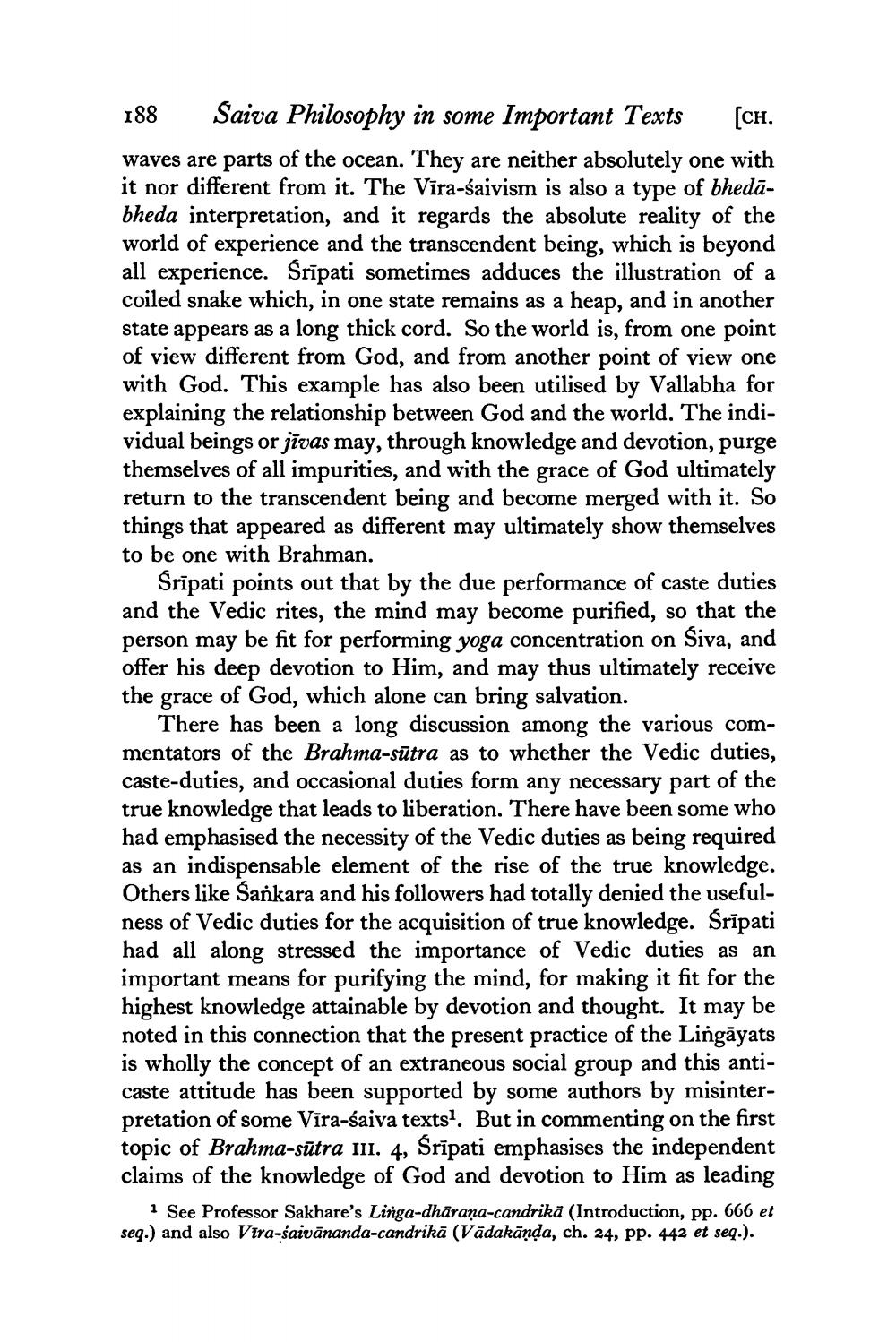________________
188 Saiva Philosophy in some Important Texts [CH. waves are parts of the ocean. They are neither absolutely one with it nor different from it. The Vīra-saivism is also a type of bhedābheda interpretation, and it regards the absolute reality of the world of experience and the transcendent being, which is beyond all experience. Śrīpati sometimes adduces the illustration of a coiled snake which, in one state remains as a heap, and in another state appears as a long thick cord. So the world is, from one point of view different from God, and from another point of view one with God. This example has also been utilised by Vallabha for explaining the relationship between God and the world. The individual beings or jīvas may, through knowledge and devotion, purge themselves of all impurities, and with the grace of God ultimately return to the transcendent being and become merged with it. So things that appeared as different may ultimately show themselves to be one with Brahman.
Sripati points out that by the due performance of caste duties and the Vedic rites, the mind may become purified, so that the person may be fit for performing yoga concentration on Siva, and offer his deep devotion to Him, and may thus ultimately receive the grace of God, which alone can bring salvation.
There has been a long discussion among the various commentators of the Brahma-sūtra as to whether the Vedic duties, caste-duties, and occasional duties form any necessary part of the true knowledge that leads to liberation. There have been some who had emphasised the necessity of the Vedic duties as being required as an indispensable element of the rise of the true knowledge. Others like Sankara and his followers had totally denied the usefulness of Vedic duties for the acquisition of true knowledge. Śrīpati had all along stressed the importance of Vedic duties as an important means for purifying the mind, for making it fit for the highest knowledge attainable by devotion and thought. It may be noted in this connection that the present practice of the Lingāyats is wholly the concept of an extraneous social group and this anticaste attitude has been supported by some authors by misinterpretation of some Vīra-śaiva textsł. But in commenting on the first topic of Brahma-sūtra III. 4, Srīpati emphasises the independent claims of the knowledge of God and devotion to Him as leading
1 See Professor Sakhare's Linga-dhāraṇa-candrikā (Introduction, pp. 666 et seq.) and also Vira-saivānanda-candrikā (Vādakānda, ch. 24, pp. 442 et seq.).




